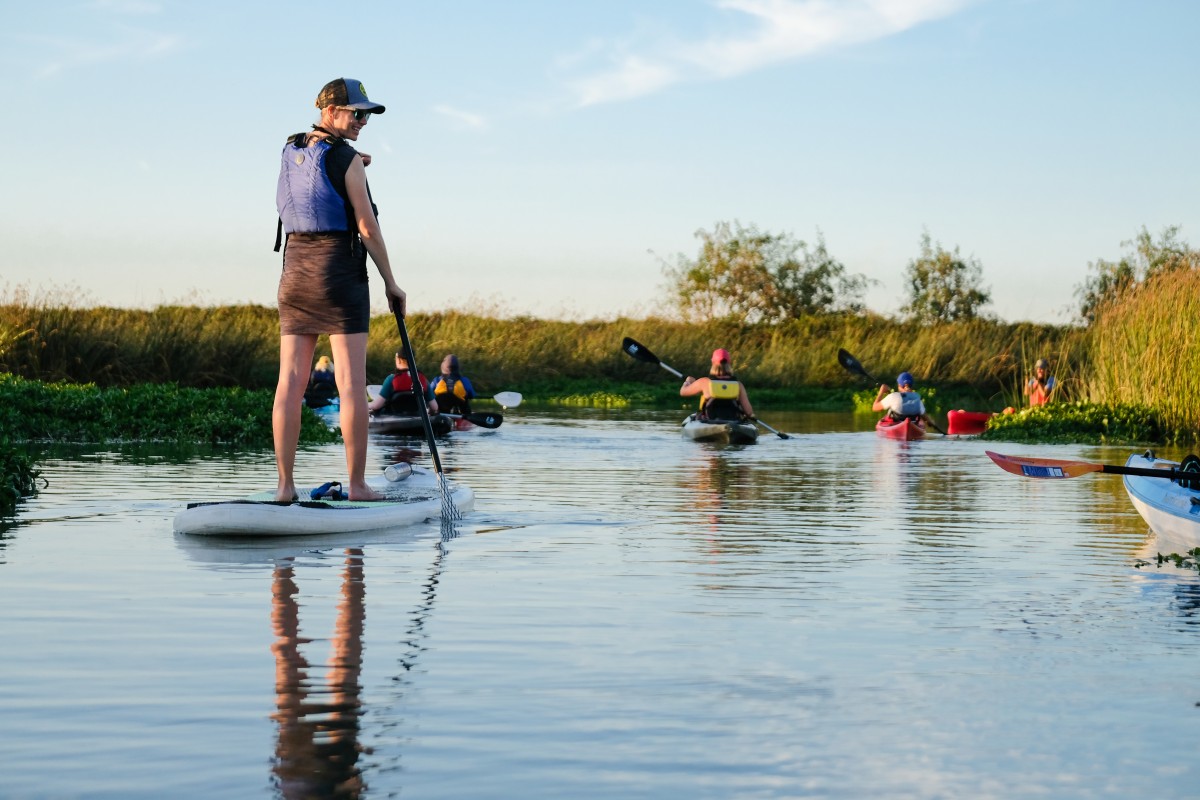
Posted: May 22, 2024
River Safety Tips for Paddleboarding and Rowing Enthusiasts
Exploring rivers through paddleboarding or rowing is an exhilarating way to connect with nature and enjoy physical activity. Whether you’re a beginner or an experienced water enthusiast, safety should always be your top priority. Here are some essential safety tips to ensure a fun and secure river adventure.
Before You Go
1. Choose the Right Experience:
- Match Your Skills: Ensure the trip matches your health, fitness, and skill level. For both paddleboarding and rowing, basic swimming ability is crucial. Always wear a buoyancy aid (life jacket), but remember it’s not a substitute for swimming skills.
- Read Reviews and Descriptions: Carefully read the experience description and guest reviews. This will help you understand what to expect and determine if it’s the right fit for you.
- Insurance Coverage: Confirm that your health and travel insurance covers paddleboarding or rowing activities.
2. Communicate with Your Guide:
- Get Comfortable: Use messaging platforms to get to know Tour Operator before the trip. Ask questions about the experience, safety measures, and any practical details.
- Disclose Health Concerns: Inform your Tour Operator of any special considerations or needs, medical or otherwise, so appropriate accommodations can be made.

On the Water
1. Equipment Check:
- Inspect Your Gear: Whether you’re paddleboarding or rowing, ensure your equipment is in good condition. For paddleboards, check the durability and suitability of the fins. For rowing, make sure the boat is stable and the oars are secure.
- Wear Appropriate Safety Gear: Always wear a life jacket that fits snugly and is in excellent condition. For colder conditions, wear a wetsuit to stay warm.
2. Understand the Conditions:
- Know What to Expect: Discuss the river conditions with your guide, including water temperature, current speed, and potential obstacles. Be prepared for any unexpected challenges.
- Scout the Route: For both beginners and advanced participants, it’s crucial to understand the route. Ask your guide about any rapids, the recommended paths, and how to navigate them safely.
During the Experience
1. Follow Safety Guidelines:
- Listen to Your Guide: Pay close attention to the pre-trip briefing and follow all instructions. Your guide will provide valuable local knowledge and safety tips.
- Stay Alert: Always be aware of your surroundings. Keep an eye out for obstacles, changes in the water, and other hazards.
2. Swimming and Self-Rescue:
- Paddleboarding: Expect to fall off your board and swim. Your guide will teach you how to get back on, but be prepared for currents and cold water.
- Rowing: While less likely, capsizing can happen. Know how to orient yourself in the water and move to the nearest boat or shore.
Emergency Preparedness
1. Guide's Qualifications:
- Check Certifications: Ensure your guide has rescue skills, such as whitewater rescue training, and up-to-date First Aid and CPR certifications.
- Emergency Plan: Discuss the emergency plan with your guide. Know what to do in case of injury, unexpected weather, or a sudden rise in river levels.
2. Group Support:
- Team Effort: In more challenging conditions, recovery might require group support. Communicate with your guide and fellow participants to ensure everyone’s safety.
Respecting the Environment
1. Minimize Your Impact:
- Follow Local Guidelines: Respect local rules and etiquette to keep the experience enjoyable for everyone.
- Eco-Friendly Practices: Use sunscreen that isn’t harmful to marine life, and always dispose of waste properly.
2. Support Local Communities:
- Give Back: Ask your Tour Operator how they support the local environment and community. Participate in efforts to keep the venue clean and sustainable.
By following these safety tips, you’ll be well-prepared to enjoy your paddleboarding or rowing adventure safely and responsibly. Communicate openly with your guide, prepare thoroughly, and respect the natural environment. Enjoy your time on the water!




